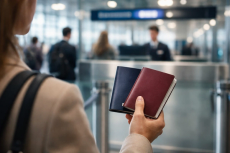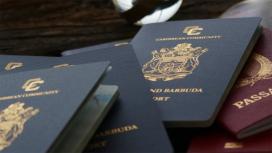Blog • Published on:September 17, 2025 | Updated on:September 18, 2025 • 8 Min
Complete List of Latvia Visa-Free, Visa-on-Arrival, and eVisa Countries in 2025
In 2025, Latvian passport holders enjoy significant global mobility, with access to 175 destinations worldwide. This includes 118 countries offering visa-free entry, 27 providing visas on arrival, and 30 requiring electronic visas (eVisas).
This level of access positions the Latvian passport among the top travel documents globally, reflecting Latvia's strong diplomatic relations and international agreements.
The travel privileges encompass various regions, including Europe, Asia, the Americas, Africa, and Oceania.
Overview of Visa Access for Latvian Citizens
Visa-Free Countries for Latvian Citizens
Latvian passport holders enjoy one of the broadest visa-free access privileges in the world. As of 2025, they can enter 118 countries without needing a visa. This covers destinations across Europe, the Americas, Asia, Africa, and Oceania.
The duration of stay varies by country, often ranging between 30 to 180 days, and is governed by bilateral agreements or multilateral treaties like the one that created Schengen Zone.
How Long Can Latvians Stay Without a Visa?
Visa-free access doesn’t mean indefinite stay; each country has specific rules on duration and purpose of entry. For tourism or business travel, durations typically fall within:
- 30–90 days in most African, Asian, and American countries
- 180 days in select destinations like Antigua and Barbuda
- 1 year in Georgia (longest visa-free stay for Latvians)
Important: Overstaying a visa-free period may result in fines, entry bans, or complications in future visa applications.
Visa-on-Arrival Countries for Latvian Passport Holders
While Latvian citizens can travel visa-free to 118 countries, there are 27 destinations that issue visa-on-arrival (VoA). This means no prior application is required and you simply receive the visa at the airport or border crossing.
These countries span Africa, Asia, and the Middle East, and typically allow short-term stays for tourism, business, or transit. Some require basic documentation, a return ticket, or proof of accommodation, so it’s not a walk-in policy, but it is straightforward.
Common Visa-on-Arrival Requirements
Receiving a visa-on-arrival doesn’t mean you can enter without documentation on top of displaying your passport. Here’s what you’re usually asked for at the border:
- Valid passport (typically with at least 6 months validity)
- Return/onward flight ticket
- Proof of accommodation
- Travel insurance (recommended but not always required)
- Visa fee (usually payable in local currency or $ — always check exact amounts)
Some countries like Maldives and Jordan may also issue electronic receipts or require you to fill in an arrival card before issuance.
Length of Stay & Extensions
Visa-on-Arrival stays usually range from 15 to 150 days (as a tourist). For example:
- Nepal: 90 days
- Cambodia: 30 days
- Maldives: 30 days (extendible by a further 60 days)
- Jordan: up to 30 days
Electronic Visa (eVisa) Requirements for Latvians
Electronic visas (eVisas) have become increasingly common, offering Latvian travelers a practical way to gain entry without visiting a consulate or embassy. As of 2025, 30 countries require Latvian passport holders to apply for an eVisa before travel.
These countries span Africa, Asia, Oceania, the Middle East, and South America, and each has its own online application portal, processing times, and fees.
What Is an eVisa and How Does It Work?
An eVisa is a digital authorization linked to your passport. It’s applied for online and usually issued via email as a PDF or confirmation number. Here's how it works:
- Apply online via the official government portal
- Upload documents like passport scan, photo, proof of travel/accommodation
- Pay the fee using a credit/debit card
- Receive approval in your email (often within 3–7 business days)
- Print the visa or carry it electronically for border control
Documents Typically Required
- Passport valid for 6+ months
- Passport-style photo
- Proof of accommodation
- Proof of onward/return flight
- Travel itinerary
- Health or travel insurance (sometimes)
Validity and Duration
- Most eVisas allow stays from 30 to 90 days
- Some, like India, offer multiple entry visas valid for 1 year or more
- Australia's eVisitor or ETA can cover long periods with multiple short stays
Countries Requiring Traditional Visas for Latvian Citizens
Despite Latvia’s extensive travel access, 23 countries still require Latvian passport holders to apply for a traditional visa before travel. These destinations typically enforce strict security procedures, limited diplomatic agreements, or unique immigration policies.
The process involves submitting an application in advance, often at a consulate or embassy and can take anywhere from a few days to several weeks.
Common Application Requirements
Each country has its own checklist, but the following are often required for Latvian citizens:
- Passport with 6+ months validity
- Completed application form
- Passport-sized photos (biometric)
- Flight bookings or travel itinerary
- Hotel reservations or invitation letter
- Proof of financial means
- Visa fee payment receipt
- Travel insurance (especially for Africa/Asia)
Special Travel Arrangements and Agreements
Latvian citizens also benefit from several special travel frameworks beyond standard visa-free or eVisa regimes. These arrangements often apply to long-term stays, specific age groups, or niche travel needs like transit or work-study exchanges.
Knowing these frameworks is essential if you plan to live, study, work, or transfer flights through a foreign country.
Working Holiday Visas
Latvia has bilateral working holiday agreements with a select group of countries, primarily designed for young travelers (usually aged 18–30 or 18–35) who want to explore a new culture while being allowed to work legally during their stay.
These programs typically allow:
- Stays from 6 to 12 months
- Part-time work or casual employment
- Minimal paperwork compared to standard work visas
As of 2025, countries that offer working holiday programs to Latvians include:
- New Zealand
- South Korea
- Canada
Bilateral Travel Agreements
Latvia has several reciprocal travel agreements in place that simplify entry procedures, extend visa validity, or remove certain bureaucratic requirements.
These often supplement or clarify Schengen and EU-level arrangements, especially with countries where there are long-standing diplomatic ties or cultural exchange programs.
Examples:
- EU-associated microstates like Andorra, San Marino, and Vatican City follow Schengen-style arrangements without formal EU membership.
- Ukraine and Moldova permit 90-day visa-free travel
These agreements tend to go unnoticed because they’re baked into broader visa-free arrangements, but they can offer flexibility around stay durations or entry methods.
Transit Visa Requirements
While most Latvian travellers enjoy airport transit exemptions, a few countries still require a transit visa depending on your route, carrier, or time spent at the airport.
Examples where transit visas may be required:
- United Kingdom – if changing airports or passing through border control
- United States – travellers must apply for an ESTA even for layovers
- Russia – requires transit visas for most third-country connections
Tip: Always check the airline’s and airport’s rules when booking multi-leg international flights. Transit rules can vary based on where you land and how long you stay airside.
Navigating Global Travel with a Latvian Passport
Navigating global travel with a Latvian passport in 2025 is smoother than ever. But if you’re still outside the EU looking in or exploring how to gain access to this level of mobility, Latvian residency or citizenship could be a strategic step.
Latvia offers flexible and well-regarded pathways, including residency through real estate investment (commonly known as the Latvian Golden Visa). It’s a straightforward route to living in Europe with the potential to apply for citizenship after a qualifying period.
If you're considering Latvian residency or citizenship, get in touch with Savory and Partners today to explore your options and take the next step toward a more mobile and secure future.
FAQs on Latvia Passport & Travel Access in 2025
1. What is the maximum duration Latvian citizens can stay in visa-free countries?
Latvian citizens can stay up to 90 days within a 180-day period in most visa-free countries. However, specific durations may vary by country. For example, Georgia allows up to one year of visa-free stay. It's essential to check the specific entry requirements of each destination before traveling.
2. Which countries require Latvian citizens to obtain a visa before travel?
As of 2025, Latvian citizens need to apply for a visa before traveling to certain countries, including Afghanistan, Algeria, and North Korea. These requirements are subject to change, so it's advisable to consult the official Latvian Ministry of Foreign Affairs website for the most up-to-date information.
3. Are there any working holiday agreements for Latvian citizens?
Yes, Latvia has working holiday agreements with countries such as Canada and New Zealand. These programs allow young Latvians to work and travel in these countries for up to 12 months. Eligibility criteria and application procedures can be found on the respective country's embassy websites.
4. Do Latvian citizens need a transit visa when passing through other countries?
Transit visa requirements depend on the country through which you're transiting. For instance, if you're transiting through the United States, you may need to obtain an Electronic System for Travel Authorization (ESTA). It's crucial to check the transit visa policies of the specific country you'll be passing through.
5. What documents are required when applying for a Latvian visa?
When applying for a Latvian visa, applicants typically need to provide a valid passport, completed application form, recent passport-sized photographs, proof of travel insurance, flight itinerary, and proof of accommodation. Additional documents may be required depending on the purpose of the visit.
References
Ministry of Foreign Affairs of the Republic of Latvia. (n.d.). Countries and territories whose citizens may enter Latvia without a visa. Retrieved from https://www.mfa.gov.lv/en/countries-and-territories-whose-citizens-may-enter-latvia-without-visa
Pilsonības un migrācijas lietu pārvalde. (n.d.). Visas and invitations. Retrieved from https://www.pmlp.gov.lv/en/visas-and-invitations
GOV.UK. (n.d.). Entry requirements - Latvia travel advice. Retrieved from https://www.gov.uk/foreign-travel-advice/latvia/entry-requirements
Written By

Laura Weber
Laura Weber is a legal expert in international tax planning and citizenship by investment. With over a decade of experience, Laura helps individuals and families navigate complex legal frameworks to secure dual citizenship and global residency options, particularly in the Caribbean and Europe.
Related Articles









Recently Published









Book a free consultation


